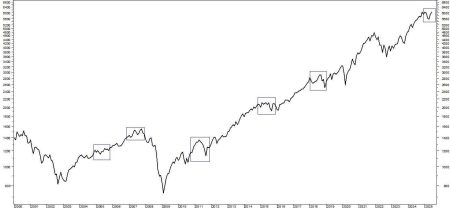1. Building a Solid Investment Foundation: Planning, Discipline, and Diversification
The journey to financial freedom through investing begins with a well-defined plan. This roadmap should articulate your financial goals, investment strategies, and risk tolerance. Whether you aim for long-term wealth accumulation or short-term gains, your plan should be tailored to your specific circumstances and time horizon. Long-term investors might prioritize diversification and asset allocation, while active traders might focus on technical analysis and precise entry/exit points. Crucially, this plan needs to be documented to serve as a constant reference, especially during periods of market volatility. Discipline and emotional control are essential for adhering to your plan, resisting impulsive reactions to market fluctuations or sensational news. Regularly review your plan, but avoid frequent changes unless significant life events or shifts in your objectives necessitate adjustments. Diversification, a cornerstone of risk management, involves spreading investments across various asset classes, sectors, and geographic regions. This strategy mitigates the impact of any single investment’s poor performance on your overall portfolio. For long-term investors, diversification might include a mix of stocks, bonds, real estate, and mutual funds. Active traders can diversify across asset types like equities, currencies, and commodities, employing various trading strategies to capitalize on different market opportunities.
2. Harnessing Technology and Purposeful Monitoring for Investment Success
Automation can streamline your investment process, reducing emotional decision-making and ensuring consistency with your strategy. Long-term investors can automate recurring contributions to retirement accounts and utilize dollar-cost averaging to steadily build wealth over time. Automated dividend reinvestment further enhances compounding returns. Active traders can leverage automated tools like stop-loss orders, trailing stops, and limit orders to manage risk and secure profits. Alerts and automated systems can notify traders of specific market conditions, facilitating informed decisions without constant monitoring. Monitoring your investments is essential, but it should be purposeful, not obsessive. Long-term investors can benefit from periodic portfolio reviews, while active traders require more frequent monitoring aligned with their predefined strategies. Avoid over-monitoring, as it can lead to anxiety and impulsive decisions that deviate from your plan.
3. Overcoming Biases and Maintaining a Long-Term Perspective
Investing involves managing psychology as much as understanding markets. Behavioral biases, such as overconfidence, loss aversion, and herd mentality, can cloud judgment and lead to poor decisions. Overconfidence can lead to excessive risk-taking, while loss aversion can cause investors to hold onto losing investments for too long. Recognizing and challenging these biases is crucial for rational decision-making. Seek diverse perspectives and information that challenge your assumptions. Maintain a trading or investing journal to document your rationale behind each decision and its outcome, helping you identify behavioral patterns and refine your approach. Focus on the bigger picture, evaluating success based on cumulative performance rather than isolated wins or losses. This long-term perspective helps you navigate market volatility with resilience, viewing downturns as opportunities for reassessment rather than panic. Sustainable growth and achieving financial objectives should be the primary focus, not chasing short-term rewards or fixating on individual losses.
4. Seeking Expert Advice and Continuous Learning
Seeking expert advice can be invaluable, especially for new investors or those facing unfamiliar challenges. Financial advisors can assist with comprehensive planning, risk assessment, portfolio diversification, and tax strategies. For active traders, mentors or industry professionals can offer insights into trading techniques and risk management. When choosing an advisor, prioritize fiduciaries who act in your best interest and possess relevant credentials and experience. While expert advice is helpful, remain actively involved in your financial journey, using the guidance to enhance your understanding and ensure alignment with your objectives. Continuous learning is paramount in the ever-evolving world of investing. Stay informed about market trends, economic developments, and new investment strategies. Engage with reputable financial resources, attend seminars, and participate in online communities to expand your knowledge and adapt to changing market conditions.
5. Building Sustainable Investing Habits for Long-Term Success
Developing sustainable investing habits is crucial for achieving your financial goals. These habits encompass disciplined planning, consistent execution of your strategy, and ongoing learning. Regularly review and adjust your investment plan as needed, but avoid impulsive reactions to market fluctuations. Automate routine tasks like contributions and dividend reinvestment to ensure consistency and minimize emotional decision-making. Cultivate a mindset of continuous learning, staying informed about market developments and adapting your strategies accordingly. Manage your emotions effectively, avoiding both excessive exuberance during market highs and undue panic during downturns. Maintain a long-term perspective, focusing on achieving your overall financial objectives rather than fixating on short-term market noise.
6. Embracing the Journey to Financial Freedom
Investing is a journey, not a destination. Embrace the process of learning, adapting, and refining your approach over time. Celebrate milestones along the way, but remain focused on your long-term vision. Acknowledge that setbacks and market fluctuations are inevitable, viewing them as opportunities for growth and learning. Surround yourself with a supportive network of advisors, mentors, and fellow investors who can provide guidance and encouragement. By combining knowledge, discipline, and a long-term perspective, you can navigate the complexities of the market and build a path towards financial freedom. Remember that successful investing is not just about maximizing returns; it’s about aligning your financial decisions with your life goals and values. With patience, perseverance, and a commitment to continuous improvement, you can achieve your financial aspirations and secure a brighter future.










